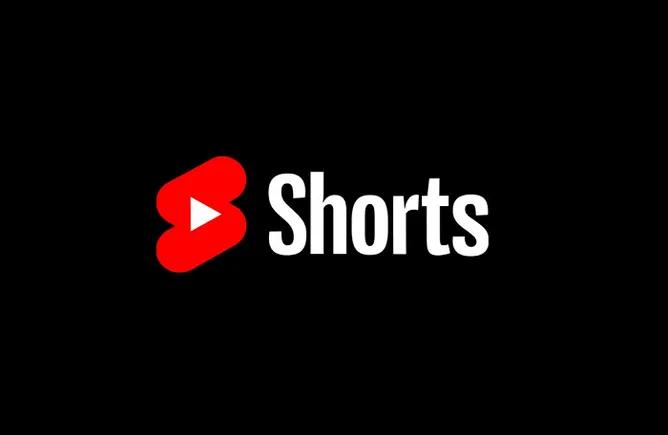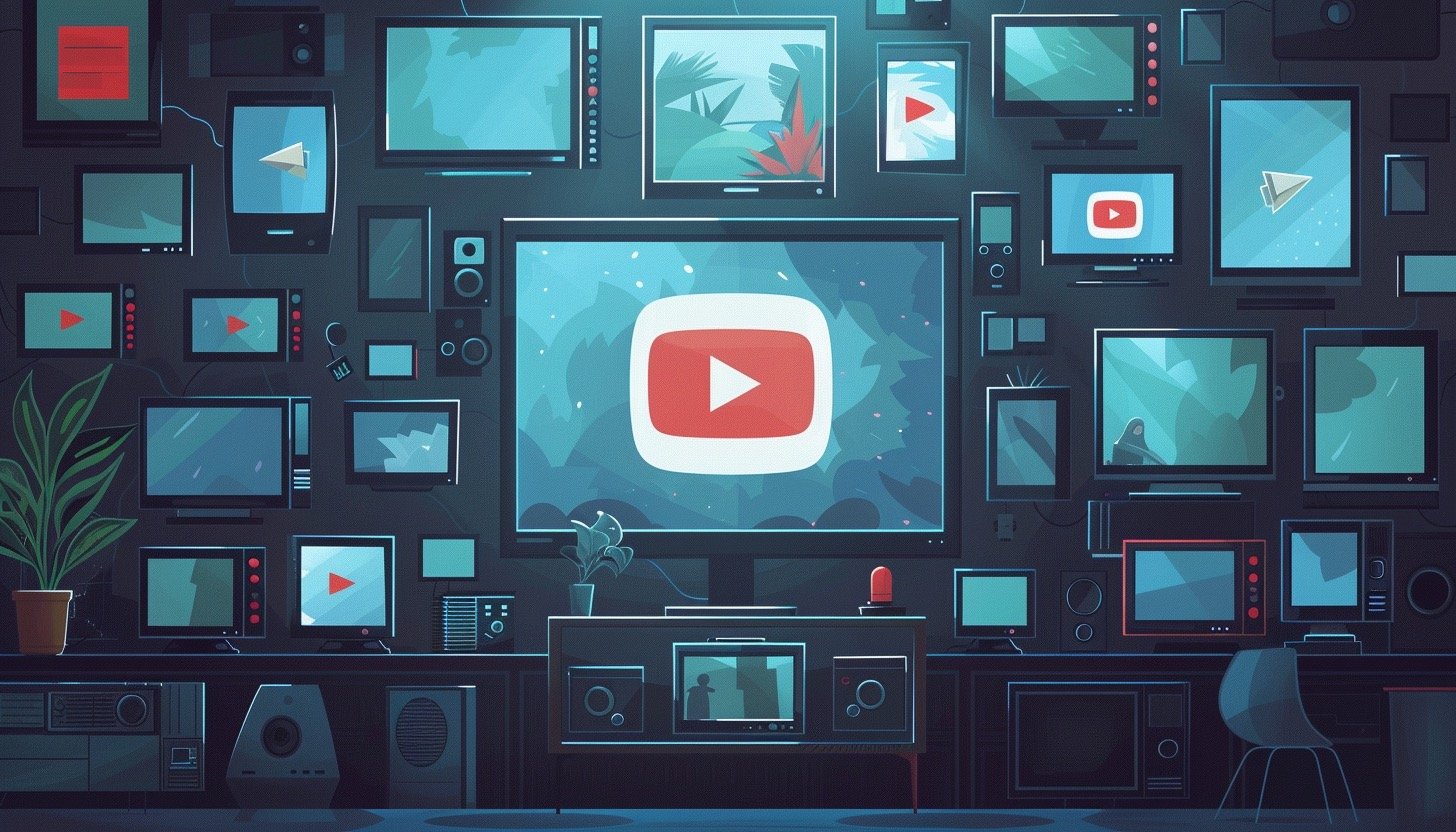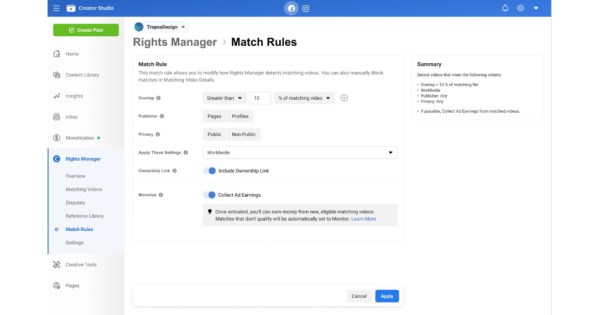It’s no secret that YouTubers can make a lot of money. But just how much do YouTubers make in 2023? In this article, we’ll explore the various revenue sources available to YouTubers and take a look at how much money top creators are raking in.
We’ll also provide some helpful tips for becoming a successful YouTuber. Read on to learn more!
How Much Money Do YouTubers Make?
According to data from 2022, the average earning for a YouTuber in the US was approximately $4,600 monthly. Creators receive a significant portion of the revenue generated on their channel, with Google distributing 55% of the advertising payment to the creator.
On average, each view on a creator’s channel results in a payment of $0.18, which equates to $18 per 1,000 views.
What are the Minimum Requirements to Make Money on YouTube?
There are several ways to earn money with YouTube business ideas. And each of them has different minimum requirements. To earn money with ad revenue through the YouTube Partner Program, you must:
Reside in a country or region where the program is available.Accumulate more than 4,000 public watch hours in the past 12 months.Attain a minimum of 1,000 subscribers.Have an AdSense account that is linked and approved to show Google ads.
How much does an average YouTuber make a year?
The average annual salary for YouTube Channel creators in the US is $29.05 per hour or about $1,161 per 40-hour work week, according to ZipRecruiter.
This is higher than the median weekly earnings of $1,041 for the country’s full-time workers in Q2 2022, which has increased by over 5% from the previous year.
How Much Money Do YouTubers Make Per View?
On their channels, creators typically receive 55% of the revenue generated. So for each $100 paid by an advertiser, Google distributes $55 to the creator.
The actual amount will vary based on a variety of factors, such as country and the type of content. Generally speaking, creators can make around $0.18 per view.
How Much Do YouTubers Make Per 1000 Views?
The amount a YouTuber makes per 1,000 views (also known as “cost per mille” or CPM) varies greatly and depends on several factors, such as the niche, geographic location of the audience, advertiser demand, the type of ads displayed, and how many subscribers you have.
On average, a YouTuber can earn around $0.18 per view or $18 per 1,000 views.
Here’s a quick word from Make Money Matt about ‘How Much YouTube Pays You for 1,000 Views!’
How much do YouTubers make per month?
YouTubers can make a lot of money from their content. On average, professional YouTubers are making about $4,600 per month from their videos.
Reaching this figure depends on several factors, like the type of videos you put out, the number of views you get, and how you monetize them.
How Much Does a YouTuber Make Per Hour?
On average, a YouTuber earns about $29.15 per hour. This estimate is based on the calculation of an average 40-hour work week at $1,166 per week, which is a commonly cited average earnings figure for a YouTuber in the United States.
It’s important to note that this is only an estimate, and actual earnings can vary greatly.
How Much Money Do 1 Million YouTube Views Make?
Making money from 1 million views on YouTube can vary greatly and depends on several factors such as the niche, geographic location of the audience, advertiser demand, and the type of ads displayed.
On average, a YouTuber can earn around $0.18 per view, which would amount to $18,000 from 1 million views. However, some YouTubers may earn significantly more or less than this average, depending on the aforementioned variables.
It’s important to note that this is just an estimate and actual earnings will vary greatly. Using a real-world example, based on Forbes’ estimated pay rate of $5 per 1,000 views, 1 million views on YouTube earns about $5,000.
How Much Does a YouTuber with 100K Subscribers Make?
The weekly earnings for YouTubers with 100,000 subscribers average between $600 to $1,000, totaling approximately $2,400 to $4,000 per month.
How much does a YouTuber with 1 million subscribers make?
The average annual salary for a YouTuber with a minimum of 1 million subscribers is $60,000. There isn’t much difference between celebrities and influencers in terms of earning potential, as both can earn up to six figures a year or more depending on the type of content and the number of viewers.
How much money do you make per YouTube subscriber?
The amount of money you can make from each YouTube subscriber will depend on a variety of factors, such as the type of content you produce, your engagement rate, and the monetization methods you use.
If you are producing content that people are interested in and have a high engagement rate then it’s possible to make a decent amount of money from each subscriber.
The TOP Earning YouTubers Right Now
With the increasing popularity of YouTube, many creators are earning significant income from their content. Here is a list of the top ten earning YouTube stars right now:
MrBeast comes in at number one and is the richest YouTuber with $54 million in YouTube earnings, 734 uploads, 132 million subscribers, and almost 22.2 billion YouTube video views. He has a net worth of $105 Million.Jake Paul has earned $45 million from 951 uploads and 20.3 million subscribers with close to 7.3 billion video views.Markiplier achieved $38 million from 5,407 videos and 34.4 million subscribers along with 19,579,307,845 video views.Rhett & Link made a total of $30 million from 340 video uploads, 4.97 million subscribers, and over 944 million video views.Unspeakable earned a total of $28.5 million with 717 uploads, 15.1 million subscribers, and 8.3 billion video views.Like Nastya made $28 million from 758 videos uploaded and 104 million subscribers plus 87.6 billion video views.Ryan Kaji of Ryan’s World comes in at $27 million in earnings from 2,303 uploads, 34 million subscribers, and 53 billion video viewings.Dude Perfect achieved a total of $20 million from 58.6 million subscribers and 15 billion video views with 366 videos uploaded.Logan Paul earned a total of $18 million across 715 uploads from his 23 million subscribers and 5,945,268,302 video views.Preston earned $16 million from 3,935 uploaded videos, 22 million subscribers, and over 7.5 billion video views.
What are Popular Niches for Youtubers?
Finding a profitable niche is key to making money online. Gaming, for instance, is a highly sought-after niche on platforms like YouTube.
YouTube viewers watched a whopping 50 billion minutes of gaming content in the previous year.Viewership for home renovation content soared, increasing by 200%.Other trending categories are:Life hacksUnboxing videos, particularly children’s toysHealth and fitnessFood reviewsHumorous fails or daring stuntsAnimal videosPersonal finance
While there’s no official ranking of the most profitable subjects, there’s significant growth in watch times for several topics. For instance:
Study skills videos saw a threefold increase in their yearly watch times.Recipe videos grew 2.5 times over the past two years.
Creators could potentially increase their YouTube earnings by considering these trends when creating content.
Ways to Make Money on YouTube
There are many ways to make money on social media sites like YouTube, and not just through the YouTube platform itself. Here are some of the ways you can make money as a YouTuber.
Showing Display Ads on Your Channel
YouTube offers a variety of display ad options, including skippable and non-skippable ads, bumper ads, and overlay ads. Skippable ads only need to be watched for five seconds before viewers can skip to their videos.
Non-skippable ads must be watched in their entirety before the video is played. Bumper ads must also be viewed in their entirety, but they can only be up to six seconds long. And overlay ads display text on the bottom portion of the video screen.
Within these categories are CPC, which stands for cost-per-click, and CPM, which stands for cost-per-mille (1,000 impressions). Clicks are likely to be more valuable for those who want real engagement or want to sell products or services now. But impressions may be more valuable for those looking to educate or build brand recognition.
Regardless of what types of ads you’re interested in, start by signing up for Google AdSense and connecting your account to YouTube. Then you can choose the formats that work best for you. The average CPC falls around $2, and the average CPM falls around $7.50. And YouTube offers about 45 percent of its ad revenue to content creators.
Affiliate Marketing
Affiliate links direct viewers to a website and track their activity. When those who clicked a link make a purchase, the affiliate who shared the link earns a percentage of the sale. On YouTube, it’s easy to include these links in descriptions. For example, you might share links to products you’ve reviewed or demonstrated.
To make use of this tactic, find affiliate programs relevant to your channel. The Amazon Associates program is popular with many. Then include your links and start bringing in passive income.
This is unlikely to bring in a ton of money right away. But you can use this strategy even if your channel isn’t large enough to host ads. Then you can continue using affiliate links alongside other revenue streams as your channel grows.
Selling Merchandise
YouTube can also provide a platform for you to market your own merchandise. Create t-shirts, mugs, or even digital products to offer to your audience. Then simply promote these items at the beginning or end of the video.
This isn’t a direct service offered by YouTube. So you need to create a website or find another way to facilitate sales. But YouTube can be the perfect inspiration for content and marketing channels because you’re already familiar with your audience.
The Patreon Button
Patreon offers a platform for monetizing content. You can add a Patreon button to your channel and descriptions, allowing viewers to essentially donate to your channel. You can also offer content upgrades that people can only get if they subscribe to your paid Patreon page.
This might include more in-depth videos or written content they can’t find anywhere else. Use your YouTube page to promote this option, while still offering some valuable content for free.
Sponsors
Sponsors differ from standard YouTube ads because you control the relationships with the brands advertising on your channel. Instead of ads automatically playing at set intervals, you integrate the promotional content into your video. This might be a short blurb at the beginning or end. Or the entire video may be about a specific product or service.
Rates for sponsorships vary dramatically. Some charge thousands of dollars for a single mention, while others work for gifted products or services. There are no minimum views or subscribers for this option since it’s not run through YouTube. So even those with small followings can utilize this option if they have an engaged niche.
YouTube Shorts Monetization
Thanks to YouTube Shorts monetization, eligible channels can earn a monthly bonus ranging from $100 to $10,000, with adjustments made based on the location of the creator’s audience.
This means that the minimum requirements for viewership and engagement may vary among creators.
How to Get Paid by YouTube
To earn money through display ads on YouTube, you must first set up an AdSense account and enable monetization on your YouTube channel.
You will only receive your YouTube Pay once the amount in your AdSense account reaches $100. AdSense pays out through various methods, such as electronic transfers to a bank account or check.
Do YouTubers Get Paid Monthly?
Yes, YouTubers typically get paid monthly by AdSense. The exact frequency of payments may vary, but most YouTubers receive their earnings from AdSense on a monthly basis, after the earnings reach the $100 payment threshold.
Top Tips to Become a Successful YouTuber
Do you have an idea for a YouTube channel that you want to turn into a success? Want to start a channel with unboxing videos of popular products or join the growing community of fitness influencers on the platform? There are nearly endless types of YouTube videos to consider.
It takes more than just having a good video concept. It also requires patience, dedication, and hard work. Here are some top tips to start a YouTube channel and become a successful YouTuber.
Pick The Perfect Niche
Advertisers like to reach relevant consumers in top YouTube niches. If your channel content varies from gaming to cooking, it’s more difficult for brands to target consumers that fit into their desired market.
However, if your content is focused on a specific area, your viewers are likely to be more engaged and dedicated, thus helping you earn more money. Doing some research on what types of videos are popular with your chosen niche can help you tailor the perfect video content.
Edit Your Video Content to Perfection
Subscribers and advertisers usually prefer polished video content to raw footage. Once you shoot videos, cut out any mistakes or unnecessary content to provide optimal value in as little time as possible.
You might also enhance the audio and visual features with things like filters or royalty-free music. There are tons of software programs for editing, from free versions like iMovie and Windows Movie Maker to pro versions like Final Cut Pro. If you’re a beginner, start with one of the free versions and upgrade as you gain more experience.
Post Regular Videos
Many YouTubers don’t get famous after one video. And even if your content goes viral, you are much more likely to build an engaged audience if you create content regularly. And those subscribers are more likely to appeal to advertisers, purchase sponsored products and services, or buy merchandise promoted on your YouTube channel.
Create a schedule, like uploading videos once a week, so they know when to look out for new videos from your YouTube channel. Then remind them to subscribe or set up alerts so they can watch all your new videos. Always try to incorporate audience engagement into your videos, like polls or questions.
Connect with Viewers and Other Creators
Your viewers want to feel connected with you and vice versa. Respond to comments on your videos and let them know that their feedback is appreciated.
Also, don’t forget to reach out and collaborate with other YouTube creators in your niche. This will help you get YouTube subscribers, get YouTube views, and create top-notch content while expanding your network of potential sponsorships or collaborations.
Utilize YouTube Analytics to Track Progress
YouTube Analytics is designed to help you track your progress and success. This feature provides a comprehensive overview of your video’s performance, giving you detailed insights into the number of views, likes or dislikes, time spent watching the video, user demographics, etc.
You can also use this data to see which videos have performed better than others and adjust your content accordingly.
Use Eye-Catching Visuals to Grab Attention
Eye-catching visuals can be the key to successful video campaigns. Use relevant graphics, colors, and diagrams to make your videos look more visually appealing.
You can also add captions or subtitles to draw in viewers who may not understand certain terms or words used in your videos. Eye-catching visuals can also help draw attention to your channel and keep viewers engaged for longer periods of time.
Here’s a concise table summarizing the top tips to become a successful YouTuber. Following these guidelines can significantly enhance your channel’s growth and engagement, helping you gain more viewers, subscribers, and ultimately, more revenue from your content.
#Tips for SuccessDescription1Pick the Perfect NicheAdvertisers prefer channels that cater to specific interests. Stick to one niche for better engagement and easier monetization. Research popular video types in your chosen area to tailor your content.2Edit Your Video Content to PerfectionQuality matters. Polish your videos by cutting out errors or unnecessary parts. Enhance visuals and audio for a professional touch. Use editing software, starting with free versions and upgrade as necessary.3Post Regular VideosConsistency is key. Regular content keeps viewers engaged and attracts advertisers. Create a posting schedule and remind viewers to subscribe or set up alerts. Include interactive elements like polls or questions in your videos.4Connect with Viewers and Other CreatorsCommunication builds community. Respond to comments and feedback. Collaborate with other YouTubers in your niche to expand your network and enhance content quality.5Utilize YouTube Analytics to Track ProgressData drives improvement. Use YouTube Analytics to understand your video performance, viewer demographics, and content preferences. Adjust your strategy based on the insights.6Use Eye-Catching Visuals to Grab AttentionAppearance matters. Enhance your videos with relevant graphics, colors, and diagrams. Use captions or subtitles for clarity and to engage viewers longer. Visuals also help in channel promotion.
YouTube Monetization Challenges and Strategies
While the potential for earning substantial income on YouTube is evident, it’s essential to understand the challenges that content creators face in the ever-evolving digital landscape. This section will explore some of the challenges YouTubers may encounter when monetizing their channels and provide strategies to overcome these hurdles.
1. Monetization Thresholds
Challenge: To access certain monetization features like AdSense and channel memberships, creators must meet specific thresholds, such as reaching 1,000 subscribers and accumulating 4,000 watch hours within the past 12 months.
Strategy: Building an audience and maintaining consistent content creation are key. Creators should focus on niche content that resonates with their target audience, engage with viewers, and promote their channel across social media platforms to attract subscribers and watch time.
2. Ad Revenue Fluctuations
Challenge: Ad revenue can fluctuate due to factors beyond a creator’s control, such as advertiser demand, seasonality, and viewer demographics. Creators may experience variations in monthly earnings.
Strategy: Diversify income sources. Creators can explore additional revenue streams like affiliate marketing, merchandise sales, and sponsored content to mitigate the impact of ad revenue fluctuations. Creating evergreen content that remains relevant over time can also help stabilize earnings.
3. Viewer Engagement and Retention
Challenge: Viewer engagement and retention are vital for maximizing ad revenue and other monetization methods. Keeping viewers engaged throughout videos and encouraging them to watch more content can be challenging.
Strategy: Improve content quality and audience engagement. Creators should focus on creating compelling introductions, using storytelling techniques, and incorporating audience interaction like polls and Q&A sessions. Consistency in content scheduling can also help retain viewers.
4. Platform Algorithm Changes
Challenge: YouTube frequently updates its algorithms, affecting video discoverability and traffic. Creators may experience shifts in video performance and audience reach due to these changes.
Strategy: Stay adaptable and informed. Creators should stay updated on YouTube algorithm updates and adjust their content strategy accordingly. Analyzing audience retention and engagement metrics can help tailor content to algorithm preferences.
5. Competition and Saturation
Challenge: YouTube is a highly competitive platform with millions of creators vying for viewers’ attention. Some niches may be oversaturated, making it challenging for new creators to stand out.
Strategy: Find a unique angle. Creators should identify their niche or area of expertise and offer a fresh perspective or unique value proposition. Collaborating with other YouTubers and leveraging social media can help increase visibility.
6. Content Burnout
Challenge: Consistent content creation can lead to burnout, affecting the quality and enthusiasm of videos. Creators may struggle to maintain their upload schedules.
Strategy: Prioritize self-care and sustainability. Creators should establish realistic content schedules, consider outsourcing tasks like editing, and take breaks when needed. Maintaining a healthy work-life balance is crucial for long-term success.
7. Audience Building
Challenge: Building a dedicated and engaged audience takes time and effort. Creators may face challenges in attracting and retaining viewers.
Strategy: Interact with the community. Creators should respond to comments, engage with viewers on social media, and build a sense of community around their channel. Consistent communication and appreciation for viewers can foster loyalty.
Final Words
It’s no secret how influencers make money on YouTube. YouTubers can and do make a lot of money, and this trend is only growing. With the rise in technology and the opportunities for content creators to monetize their channels, it’s projected that many successful YouTubers will continue to make more money in 2023.
So if you’re looking for businesses to start with no money, business ideas for stay-at-home moms, or are interested in how to start a YouTube channel and become a successful YouTuber, the strategies above will help you get there. With the right strategy and commitment, you can be among the top earners on YouTube in 2023.
Image: Envato Elements
More in: Google, Video Marketing
Source link









